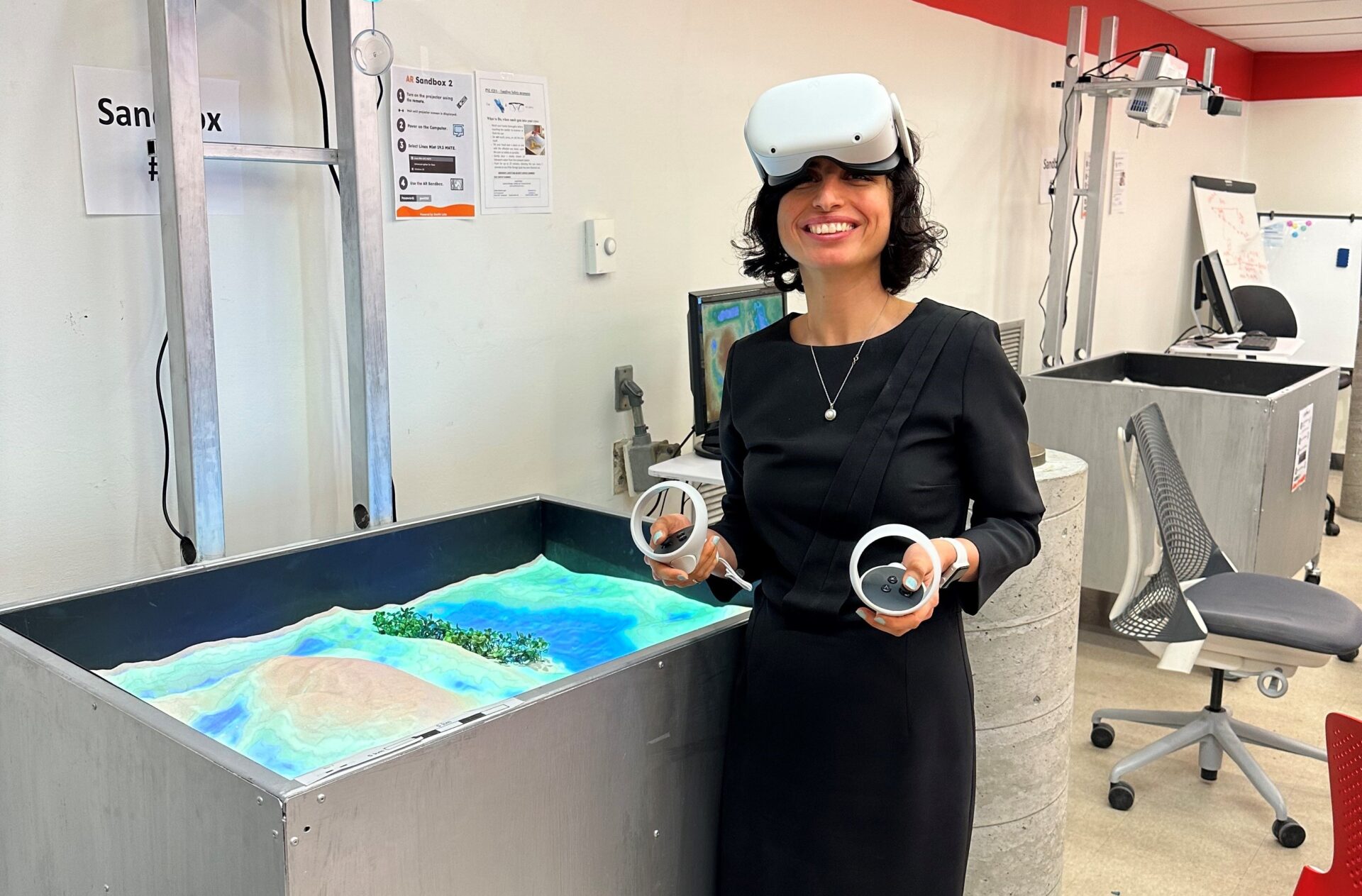Lassonde professor promotes fun way to learn in engineering
Tags:

This story originally appeared in YFile
Mojgan Jadidi, an associate professor in the Department of Civil Engineering at York University’s Lassonde School of Engineering, is looking to create more entertaining ways for undergraduate students to learn – in this case, how to pilot drones through a gamified virtual reality (VR) experience.
Who says engineering class can’t be fun and games?
Certainly not Jadidi.
Jadidi – who is also the director of common engineering at Lassonde – and her team are developing a program that will allow students to learn to fly drones through virtual reality.
Engineers need the skill set of flying a drone in their work for a variety of reasons, said Jadidi. Civil engineers could fly drones to measure a construction site or to inspect a building or survey infrastructure. They could use them to collect data or solve logistics problems in the supply chain, use them for deliveries or emergency management.
Jadidi wants to create a program that will help engineering students learn that skill set while having all the fun of playing a video game.
“Virtual reality technologies have become a fun activity for the current generation – maybe for me as well,” Jadidi said. “Our current students are really intrigued to use it.”
Through the virtual reality drone program, students don a headset that immerses them in an environment where they will fly a drone about the size of a shoebox. The scene could look like a lab or an entire city with skycrapers or, as Jadidi’s program does, the city of Paris. Student hold a control device that steers a 3D-animated drone that appears on the headset screen. The result gives students an experience like flying a drone in the real world but without the fear of crashing, making it cost effective, open to experimentation and safe. It creates a learning environment that bridges the gap between theory and real-world application with no downside – and makes it fun in a way that resonates with the current generation of students.
“We try to gamify everything because students – especially university students – love playing video games,” said Damith Tennakoon, a master’s student at York University and a researcher who helped design the drone program. Leaning into a gamified approach creates a more organic, intuitive learning experience for many.
“The great thing about playing video games is you just get into it. We hope for the same thing for these kinds of VR training applications.”
Beyond the aspect of fun, the program team found that flying a virtual drone also is a superior way to learn. To test that theory, researchers took two students who had never flown a drone and gave them an assignment with specific criteria for flying and landing. The virtual flyer completed the task more quickly than the real-world flyer. And, even more important, the virtual flyer’s landing was more accurate than the real-world flyer.
Jadidi also believes that gamifying students’ lessons can help them retain information better. She recalls with previous gamified projects, students’ retention of complex knowledge was much stronger than when they were given just theoretical concepts.
Jadidi is currently testing the program with different students and groups of people to make sure everything is correct from the development side. The program is in the process of achieving ethics approval from a division of York University. That will allow researchers to collect and analyze data and share it with the community to show how virtual reality technology can improve student learning.
Jadidi said she hopes to have the first large class as a workshop in VR drone flying this fall. Later on, the program will be part of lab work for relevant courses, she said.